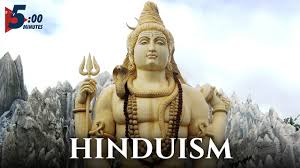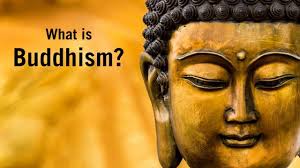Religions of the World: Hinduism, Buddhism, and Atheism
1/63
There's no tags or description
Looks like no tags are added yet.
Name | Mastery | Learn | Test | Matching | Spaced |
|---|
No study sessions yet.
64 Terms

The Axial Age
transformative movement from preliterate narrative to literate theorizing
Aryan Culture
Nomads (moved around) where they travelled light around 1500 BCE.
Harrapan Culture
They were not nomads. They built cities and permanent settlements, which is why they were invaded by the Aryan Culture.
Sanskrit
language considered to be the root language of Europe. Indo-European language (for example: English)
forms of Hinduism
Vedic Hinduism
Upanishadic Hinduism
Devotional Hinduism
3 Seprate Sacred Tests
The Vedas
The Upanishads
The Bhagavad-Gita
All were written in Sanskrit
Moksha
Liberation from samsara (to stop suffering)
Samsara
The wheel of death and re-birth (reincarnation)
reincarnation is a bad thing in Hinduism because it is believed that in Hindu culture live is suffering
Maya
Illusion
We live our lives in illusion, so that is why we are stuck in samsara. If we live in illusion we will reincarnate.
Yoga
Helps to maintain Moksha. The point of yoga is to enable physical postures to meditate. Through meditation, we can dispel illusions.
Atman
Soul
Karma
The weight of all of our past actions, good and bad, in any given incarnation. The state of our karma determines how we will be reincarnated
have children increases good karma
Mohandas Gandhi
assassinated at the age of 80, and when he died his last words were “Rama,” which is the God he was devoted to
was referred to as the Mahatma, which is “Great Soul”
He achieved Darshan (liberation)
when he died, he was placed on a bed of flowers and was processed down to the Ganges River, surrounded by millions of Hindus
it was a blessing to be in his presence because he achieved liberation.
Ganges River
The most sacred river in Hinduism because it is where the ashes of those who have been cremated are thrown.
Goddess Ganga
Agni
means Ignite
the most important of the gods; it is the god of fire
Brahman
Ultimate Reality
When you give up living in Maya and obtain Moksha, you will experience Brahman (achieve ultimate reality) if you practice Upanishadic.
Shruti
The Vedas written by the Gods
Smurti
The Vedas written by Humans
The Vedas
The Vedas (means knowledge): knowledge of the Gods and Goddesses; are a vast collection of stories, poetry, hymns, and legends.
a product of Aryan Culture
Avatar
Original Hindu term: refers to the various forms a God or Goddess can take
appearance
Vinshnu
A God that takes 10 different Avatars
One of the most popular/famous is Krishna
The Rig Veda
the oldest and largest of the Vedas
Contains directions for priests for their various rituals
specific set of rituals for Agni (God of fire)
Aryan Culture acknowledged priesthood as their leader.
The Caste System
Brahmin: Priesthood
Warrior
Merchant
Peasant Cast
Each cast is called a Varna
Untouchables
not part of the caste system
the result of having very bad karma
Go by the name “The Dalit”
belief is that you get what you deserve
What determines the Caste System?
the Karma determines what you are born into
Philosophical Hinduism (The Upanishads)
Stop living in Illusion.
The Upanishads: secret teaching.
Brahman: Impersonal cosmic energy of the universe
Core belief: Atman=Brahman
Our soul participates fully in Brahman.
More karma is living in more illusion
Conceptual Knowledge
rational everyday knowing
Correspondence theory of truth
thoughts correspond with reality
coherence theory of truth
thoughts are logically consistent
conceptual confusion
basic confusion
taking a multiple choice exam and getting the answer wrong or being stuck between two answers
conceptual ignorance
i dont know
perceptual knowledge
Reality is unconditional by conceptual knowledge
perceptual confusion
project your version of reality on others inappropriately
when you mistake your thoughts about reality for Reality
pereptual ignorance
we simply just do not know
Guru
to give guidance in achieving Moksha
Hinduism enlightenment
Moksha
Devotional Hinduism (Bhakti)
Devotion to a specific God or Goddess is compatible with a busy lifestyle because Devotional Hinduism is focused on Bhakti. If you practice Bhakti, it is a way to achieve Moksha. You don’t need to practice years of Yoga/meditation.
Does not require lots of time or money.
Bhagavad Gita
Story about a warrior by the name is Arjuna who belongs to the warrior caste.
One day he is told he must fight some of his relatives and that he does not want to do.
Arjuna has a companion who drives his charioteer, who is the God Krishna, but Arjuna does not know this.
Arjuna goes to Krishna with his problem about fighting his relatives. And Krishna provides him with the answer.
Krishna says, “you have to fight you are a warrior, but you do so with no concern about the outcome.” He is saying to remain neutral to the outcome of the fight.
Arjuna agrees to do so, and Krishna reveals his identity.
The message of the Bhagavad Gita: “we do our duty to the god that we are devoted to.”
The 4 legitimate life goals
Student: learning and pleasure
Householder: establish a household and accumulate wealth ad power (marry and have a family)
Hermit: to assume one’s duty to reflect on the nature of reality (Practice of Bhakti do the duty of the god of whom I’m devoted- devotional or if reflect on the nature of reality- philosophical)
Life of the merchant/beggar(always an elderly person and always naked): The man leaves his family and renounces all his wealth and possessions to pursue enlightenment/moksha. Giving the beggar food, water, and shelter is very good karma.

Siddhartha
Hindu prince who created Buddhism
Origin of Siddhartha
One day, while Siddhartha is still small, a man shows up at his father’s door and tells him a prophecy saying, “Your son will either be a great ruler or a great holy man.”
The king shields Siddhartha from any other religious temptation and lives in luxury.
At 29, Siddhartha has a beautiful wife and small child.
He starts to think that if he were to become king, he should tour his kingdom.
Siddhartha goes out with a companion, and he see things he’s never seen before. Poverty, illness, aging, and death. Siddhartha was never exposed to the reality of suffering.
Siddhartha’s Change
Siddhartha sees a Sannyasin = Holy man
He renounces his duties as prince and leaves his family to become a holy man. His life goal is to find an answer to the question of suffering.
To become a holy man, one needs to live in moderation. In Hinduism, one doesn’t have to live the extreme life of the beggar.
One day, he decided to sit under a tree called a Bodhi Tree and waited for 49 days to find the answer to the question of suffering. On the 50th day, he found the answer.
In finding the answer, he became enlightened —> Nirvana
The answer to suffering
we suffer because we desire what we cannot have
The Buddha
not a god and will not become divine. always proclaimed himself to be the person who found the answer to suffering (very modest).
Sangha
the Buddhist community
The Four Noble Truths
All of life is suffering
The cause of suffering is desire
To stop suffering stop desiring
To stop desiring, follow the 8-fold path
The 8-fold Path
Right view: to live by the 4 noble truths
Right Intention: live with an optimistic mindset
Right Speech: don’t speak in ways that are violent, gossip, slander, and lying
Right action: make sure our actions are non-violent
Right livelihood: choose and exercise a profession that is non-violent
Right effort: do our best
Right mindfulness
Right concentration
mindfulness in Buddhism
mental discipline: to stay focused on the present moment. To keep our focus on the here and now. Live in the present
Worrying
When one worries, they are not being present. It allows us to transport into the future.
Worrying about the past it can’t be changed and it takes away from being present.
Karuna
loving and kindness
to be mindful is to be in the present. And to be present, you need to be loving and kind
Sangha
the Buddhism community
the Buddha is not God or Devine
When the Buddha died at 80, left behind the community, it spread worldwide
Originated in India and spread to other countries in Asia, People’s Republic of China, Japan, and the US.
Bodhisattva
Someone who is enlightened and has achieved nirvana but keeps coming back in excessive reincarnations. They make the decision to undergo successful reincarnations to help others be in nirvana.
Characterized by their compassion.
Most famous Bodhisattva: Dalai Lama (13th Dalai Lama: 13th reincarnation)
Anatman
no soul/no-self
the idea of self is a lie
no permanent anything; the only thing there is, is change
Enlightenment in Buddhism
Nirvana
four different types of reincarnation
realm of punishment
“hungry ghost” comes back as a pure spirit wandering around the world
animal
human: the best way to come back
Dalai Lama
Bodhisattva
current leader of Tibetan Buddhism
sins of commission
committing an act that commit harm
sins of omission
using free will to decide not to intervene when should’ve
natural evil
any form of evil that free will is not apart of
animal behavior
natural disasters
illness
atheism
denial of god’s existence
agnosticism
someone who is not sure whether god exists
theodicy
any argument that seeks to absolute God from responsibilities for evil
Nietzsche
The Death of God
if god is dead, then everything is permitted
no ethical and moral boundaries die
useless suffering
developed by Emmanuel Levinas
thinks theodicy is bankrupt and pointless